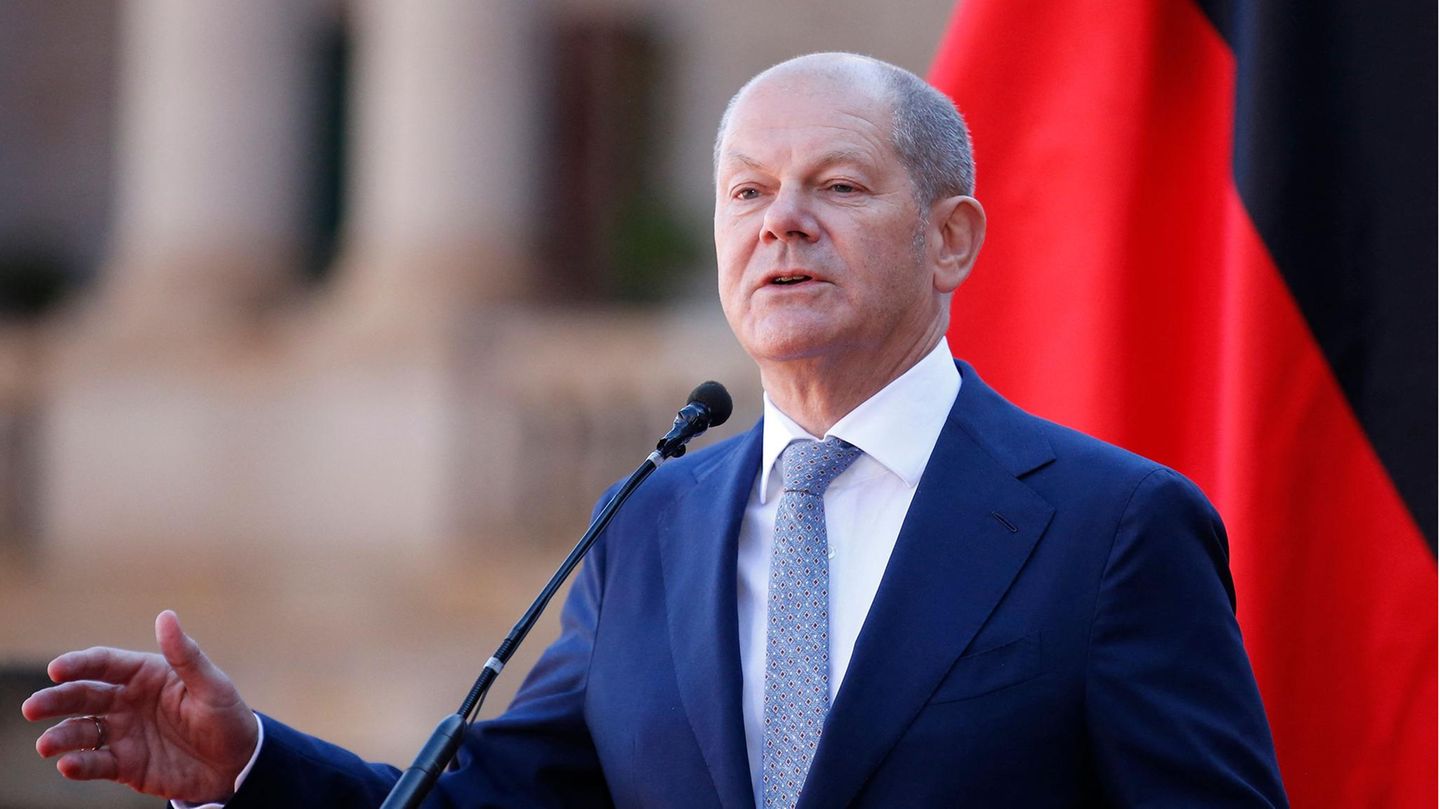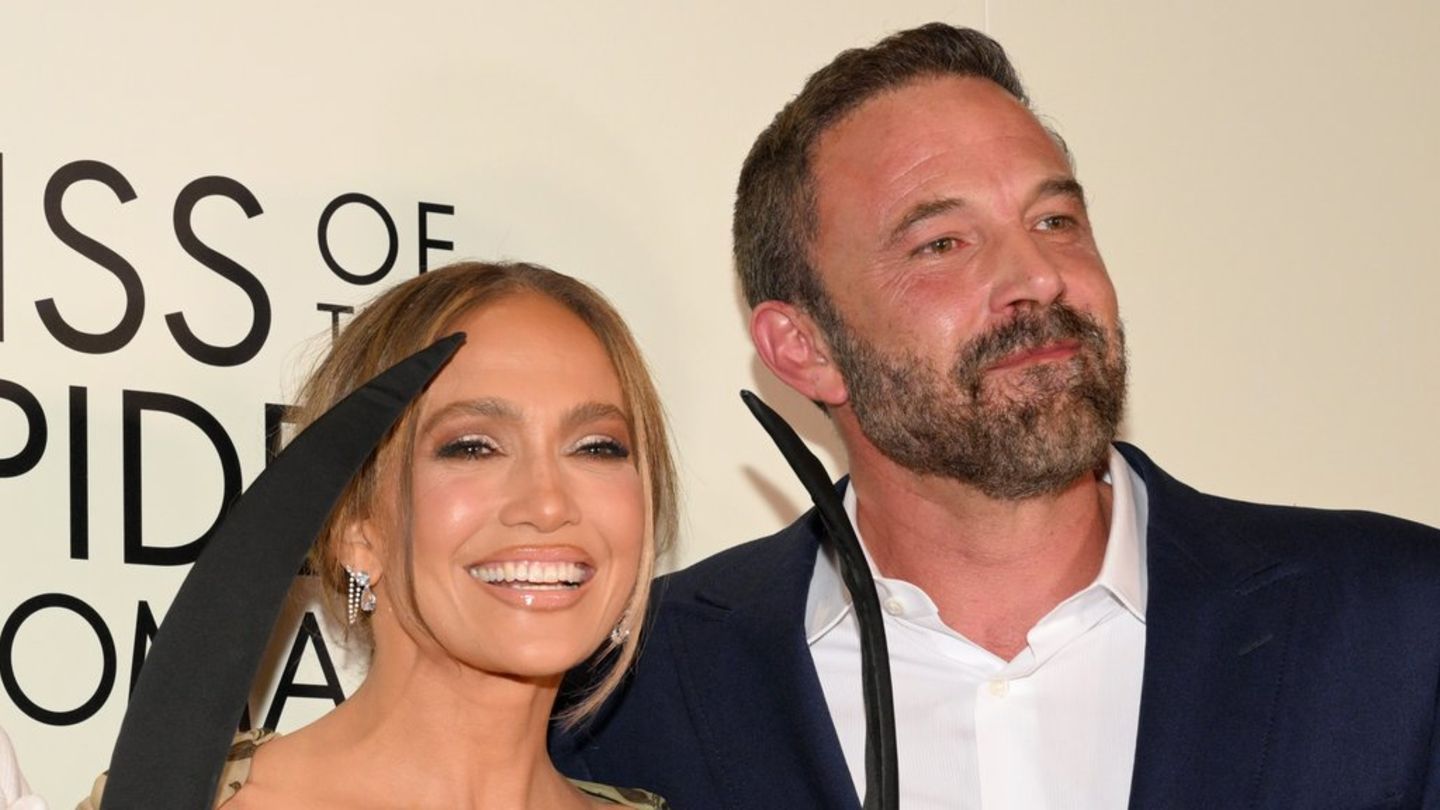“Russia must not win, Ukraine must survive,” says Olaf Scholz. No further questions, except: What does that mean? Once again, the Chancellor is fueling a debate that he is actually trying to brush off.
Olaf Scholz is obviously not someone who unnecessarily spreads verbally or clearly defines. A review:
- The Chancellor spent the first few weeks in office parrying all sorts of questions about the future of “Nord Stream 2”. He didn’t even mention the name of the gas pipeline in connection with the deployment of Russian troops at the time.
- Then Scholz did not want to be pinned down to direct or indirect delivery of German arms to Ukraine. A turnaround followed under the catchphrase “turning point in time”.
- Finally, the question arose as to why the chancellor was not traveling to Kyiv. Scholz has his reasons, .
Scholz avoids banging pegs into the ground to gain room for manoeuvre. Some call it weighing, others hesitating. : “I always made quick decisions.” His course is “that we act prudently and with a clear mind”, that decisions are not made from a PR point of view, but that each one has to be “carefully weighed” with a view to possible consequences.
In this respect, one can assume that the chancellor carefully weighed up his words on the political goals of the federal government associated with its engagement in Ukraine: “Russia must not win, Ukraine must prevail”, . No further questions, except: What does that mean?
“I’m afraid the Chancellor doesn’t want Ukraine to win this war”
For Scholz, who is stuck with the next debate about his hesitant attitude and communication, his formulation again offers all sorts of room for speculation – while other alliance partners name their goals more specifically:
- “Of course I really hope that Ukraine will win this war”, . “It is particularly important that Putin does not win this war and that he does not think that he has won this war either.”
- “We will act faster and go further to oust Russia from all of Ukraine”, . This would also mean the Crimean Peninsula, which Russia annexed in 2014. A victory for Ukraine in this war is now a “strategic imperative” for the West, according to Truss.
- “It will continue until we see ultimate success,” in support of Ukraine. “We want Russia to be weakened to the point where it’s no longer capable of something like invading Ukraine.”
The opposition recently raised serious allegations against the Chancellor’s course. When it comes to delivering heavy weapons, Scholz plays for time, . Finally, Ukraine would have the infantry fighting vehicle marten and the battle tank leopard can be provided long ago. “I’m afraid that the Chancellor doesn’t want Ukraine to win this war,” Kiesewetter accused the Chancellor. “Wins in the sense that the Russian troops are driven out of the country.”
What is certain is that Scholz’s formulation that Russia “must not win” and Ukraine must “exist” does not give rise to a clear idea for a post-war order. This is obviously intentional: “Germany has not formulated any specific war goals,” quoted deputy government spokeswoman Christiane Hoffmann. “Except on the condition that there will be no dictated peace. The specific war goals are a matter for Ukraine.”
What follows?
However, this blurriness raises questions – which could take revenge the longer the war lasts, says Markus Kaim. “Without this clear determination or prioritization, the military engagement threatens to lack measure and direction,” writes the security policy expert in a . That would “erode public political approval in the long term.” Although no one will seriously argue against Scholz’s goal, it will only remain a “minimum goal,” said Kaim. “Because what does that mean exactly, and what political and military steps arise from it?”
In view of Scholz’s cautious rather than brash formulation, there is plenty of room for speculation, possibly with the intention of avoiding further escalation with Russia. “We have to worry that there is an escalation of the war”, . Instead, you have to be able to “make sensible, very conscious and also courageous decisions.” Putin must not win the war, that is the goal. But the goals would not go beyond that, “given the fact that it is a nuclear power, that would be a completely wrong goal,” said Scholz.
Scholz did well for a long time with his communication style, ultimately to the top of the government. However, the strategy seems to be increasingly reaching its limits. First the corona crisis, then the Ukraine war, aroused a desire for clarity that apparently demands more: According to a survey by RTL, two-thirds of the population attest that he does not adequately explain his politics.
Scholz did a lot to dispel this impression: one, one, he stood by in one-on-one and answered questions, gave interviews to many print and online media, including him star () and has already spoken directly to the population in two TV speeches – his predecessor in office only managed to do so once in her entire chancellorship.
But the chancellor can’t seem to shake off his often rhetorical reserve – which the opposition knows how to use. “I also thought it was right that he pointed out the possible dangers of a nuclear war in an interview”, . “But then? Then he disappeared from the scene again for three weeks and left the Germans alone with this concern. And when he finally spoke, nobody understood what he actually wanted to say.”
Sources: , , , , , , , , , ,
Source: Stern
David William is a talented author who has made a name for himself in the world of writing. He is a professional author who writes on a wide range of topics, from general interest to opinion news. David is currently working as a writer at 24 hours worlds where he brings his unique perspective and in-depth research to his articles, making them both informative and engaging.




